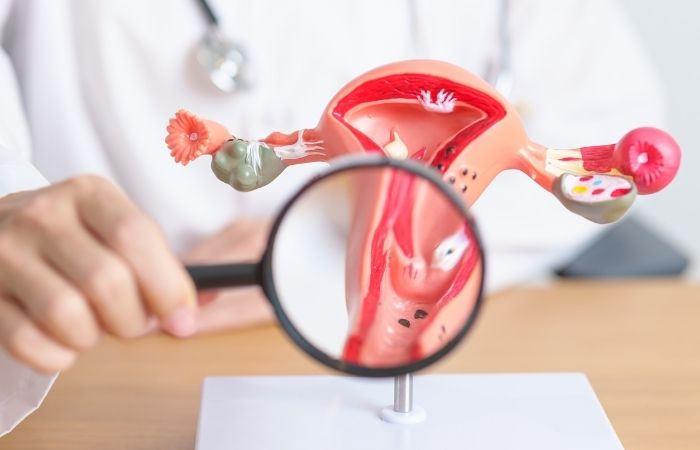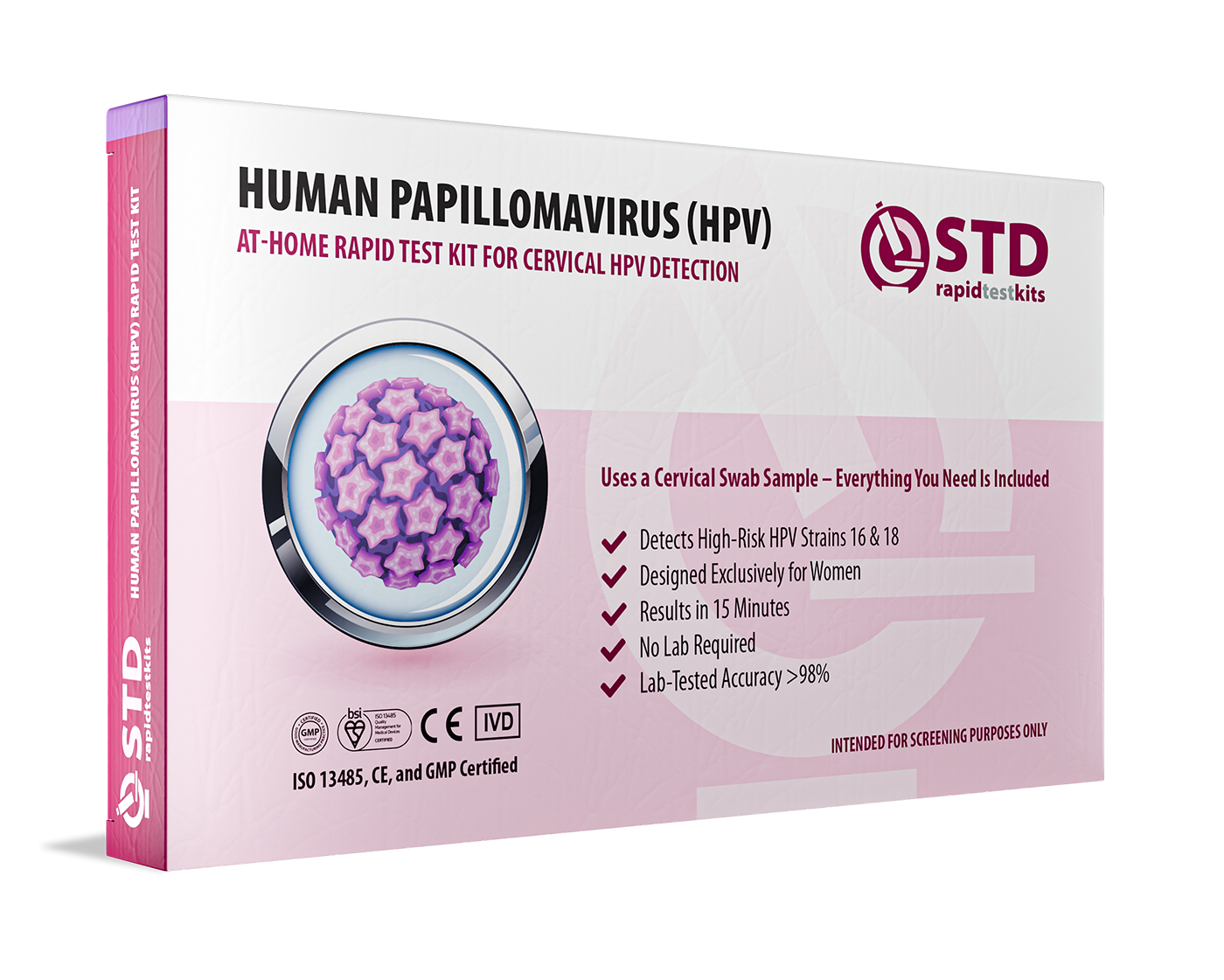Quick Answer: Herpes does not cause cancer. However, other STDs, especially HPV, hepatitis B, hepatitis C, and sometimes HIV, are strongly linked to certain types of cancer, including cervical, anal, liver, and throat cancers.
This Pain Feels Scary, But Is It Dangerous?
Let’s start with the fear that brings most people here: a blister, burning, maybe flu-like symptoms, and a nagging feeling that something’s not right. If you suspect herpes, it makes sense that your mind jumps to worst-case scenarios. Many readers worry they’ve ruined their health permanently, or that an STD diagnosis is a ticking time bomb for future disease. And thanks to years of tabloid-level fearmongering, cancer often tops that list.
But here’s the truth: herpes simplex virus (HSV-1 and HSV-2) is not linked to cancer. You can have herpes, painful, inconvenient, deeply emotional, and never face cancer risk because of it. Herpes lives in nerve cells, not in the areas of cell mutation where most cancer begins. That’s a key difference from HPV, which targets skin and mucosal cells where cancer can develop over time.
In fact, many studies have specifically looked for a causal relationship between HSV and cancer and found none. While some older papers speculated on a possible link between herpes and cervical cancer, today’s consensus is clear: cervical cancer is caused by high-risk strains of HPV, not herpes.
So why does herpes get so much blame? It hurts. It recurs. And it looks dramatic. But visually scary doesn’t equal deadly. The stigma around herpes makes it feel life-ending, but from a cancer risk standpoint, it’s not even in the top five concerns. It’s the sneaky, often invisible STDs that deserve more attention, and that’s where we’re headed next.

People are also reading: HIV Shots Work in Seniors, Here’s What It Means for Testing
Not All STDs Are Harmless, Some Can Turn Deadly
While the emotional crisis is usually associated with herpes infections, it's usually cases of STDs that cause no pain at all which put your life at most risk. Their presence is signs of no symptoms for many months or many years before they cause cancer, and it's all because of this:
It is primarily the HPVs that cause major offenses concerning cancer risk. Certain high-risk types of HPVs, such as types 16 and 18, have already been linked to cancers of the cervix, anus, throat, vulva, penis, and oropharyngeal areas. This is unlike the herpes simplex virus because instead of attacking nerve cells, HPVs target epithelial cells and may cause cancers if not treated or checked constantly.
The hepatitis B and C infections target the liver. Should infections go unattended, chronic infections cause inflammation and eventually lead to hepatocellular carcinoma. Hepatitis B infections can also be transmitted through sexual routes, especially anal or vaginal intercourse. While rare for hepatitis C infections to happen through sexual routes, they remain prevalent among unprotected male couples and among HIV-infected patients.
HIV does not cause cancer directly, but its influence on the immune system makes opportunistic cancers or AIDS-related cancers flourish. These cancers include Kaposi's sarcoma, non-Hodgkin's lymphoma, and invasive cervical cancer. However, even with effective antiretroviral therapy or treatment (ART), individuals infected with HIV experience a slight elevated risk for specific cancers.
| STD | Cancer Risk | Type of Cancer | Can It Be Prevented? |
|---|---|---|---|
| Herpes (HSV-1/2) | No known cancer link | None | Not applicable |
| HPV (Human Papillomavirus) | High | Cervical, anal, throat, penile, vulvar | Yes – HPV vaccine + regular screening |
| Hepatitis B | Moderate–High (chronic) | Liver cancer | Yes – HBV vaccine + treatment |
| Hepatitis C | Moderate (chronic) | Liver cancer | Yes – Curable with antiviral therapy |
| HIV | Moderate (immune-related) | Kaposi sarcoma, lymphoma, cervical | Yes – ART + screening |
Figure 1. STD-linked cancers by infection type. Herpes is not on the cancer-causing list, but others carry real oncologic risk if untreated.
“I Thought It Was Just a Sore Throat”
Jorge, 34, had never heard of HPV-related throat cancer until his dentist flagged something suspicious during a routine exam. “I’d had this weird sore throat for weeks, but I thought it was allergies or maybe stress,” he says. A biopsy revealed oropharyngeal squamous cell carcinoma, linked to an undetected high-risk HPV strain.
He had no genital symptoms. No warts. No visible signs of infection.
“I always thought HPV was a women’s issue, about pap smears and cervical cancer,” he says. “No one ever told me guys could get cancer from it too.”
His story isn’t rare. In fact, HPV-related oral and throat cancers are rising sharply in men, especially those who’ve had oral sex with multiple partners. Unlike herpes, which makes itself known, HPV often hides, until it doesn’t.
That’s why routine screening, vaccinations, and honest conversations about sexual history matter. And it’s also why it’s time to stop panicking about the wrong infections and start acting on the right ones.
How to Know If You're at Risk, and What to Do About It
If you're still asking, "Could I be at risk for cancer because of an STD?" the honest answer depends on the infection, and whether you've been tested. Most of the STDs that can lead to cancer take years, sometimes decades, to show their damage. That means catching them early is your best defense.
Here's what matters most:
If you’ve never had an HPV test or vaccination and you're sexually active (especially with new or multiple partners), it's time to ask about screening. Pap smears, HPV DNA testing, and anal pap tests are available depending on your anatomy and risk profile. And yes, people with penises can carry high-risk HPV without knowing it. There is no approved HPV screening test for men, but visual exams and STI panels help track risk indirectly.
For hepatitis B and hepatitis C, a simple blood test can check your status. Hep B is vaccine-preventable. Hep C is now curable in most cases, but only if you know you have it. Many people don’t.
Another key aspect is HIV testing: it is important not only to eliminate immunosuppression but also because it impacts your Cancer Risk Profile and your body's response to any sexually transmitted infections. Those infected with HIV have higher chances of getting cancers associated with HPVs if they are not on successful therapy.
But if you’re having trouble deciding where to begin or are too embarrassed to bring it up with your physician, at-home combo tests for STDs are a discreet and effective means of diagnosing prevalent infections without having to go to the doctor's office.
Rapid tests assess for prevalent sexually transmittable infections such as chlamydia, gonorrhea, syphilis, and HIV, and provide quick results. Rapid tests do not test for HPV (especially for males), but having this information is crucial to determine your overall risk level because if you test positive for one sexually transmittable infection, your chances are higher to possess or come into contact with others that need further testing.
Check Your STD Status in Minutes
Test at Home with RemediumPapillomavirus (HPV) Test

 For Women
For Women Results in Minutes
Results in Minutes No Lab Needed
No Lab Needed Private & Discreet
Private & DiscreetOrder Now $33.99 $49.00
Why Herpes Still Feels So Scary (Even If It’s Not Cancerous)
It’s worth asking: if herpes doesn’t cause cancer, why does it carry so much emotional weight? The answer is shame, and misunderstanding. People often conflate visibility with danger. Herpes is visible. It can hurt. It disrupts sex lives, confidence, and mental health. But in medical terms? It’s a manageable, non-life-threatening condition.
The emotional damage of a herpes diagnosis often outweighs the physical symptoms. And that’s where the confusion happens. Many patients have said, “I felt like my life was over,” when what they needed was treatment, a plan, and reassurance. In contrast, HPV or hepatitis can go unnoticed until serious complications emerge. You don’t fear what you can’t see, until it’s too late.
STD Rapid Test Kits offers confidential testing tools to help break that pattern. You don’t have to wait for symptoms, or cancer, to act. Whether you're navigating a scare, managing a known infection, or just want clarity, your health starts with knowing your status.
If your head keeps spinning, peace of mind is one test away. Try a discreet at-home combo kit today, because even if it’s not cancer, it still matters.
When It's Not Cancer, But It’s Still Serious
Here’s something people rarely say out loud: even if your STD won’t give you cancer, that doesn’t mean it’s harmless. Herpes may not mutate your cells, but it can still mess with your mental health, relationships, and sex life, especially if you don’t know what’s going on or when to test. And that’s where a lot of confusion comes in.
The difference between an incubation period (when symptoms might show) and a window period (when a test can detect infection) trips up a lot of people. You might feel totally fine, or be mid-outbreak, and still test negative if it’s too early. That can create false reassurance and delayed treatment.
If you’re unsure when to test after a hookup, scare, or symptom, don’t guess. This Window Periods Guide breaks it all down by STD, test type, and exposure timeline. It’s not about doing it perfectly, it’s about doing it when it counts.
Testing too early? You might miss it. Testing too late? You might already be contagious. There’s a sweet spot for everything, and we built a tool to help you find yours.
Still Not Sure If You Should Test? This Might Help
If you’re hovering between “I’m probably fine” and “What if I’m not?”, you’re exactly the kind of person these tools were made for. You don’t need symptoms to justify getting tested. In fact, most cancer-linked STDs (like HPV or hepatitis B) show zero signs for years.
The good news? You don’t have to overthink it. We built an anonymous, stigma-free quiz to help you figure out whether testing makes sense right now based on your last partner, protection method, and timing.
Take the STD Risk Checker Quiz. It’s free, quick, and designed to help you make a call without judgment. You’ll get instant clarity on what tests might matter most, when to take them, and whether you’re in a retesting window from past exposure.
Trust isn’t built by scare tactics, it’s built by giving people real information they can act on. If you’re here, you already care. That’s a damn good start.

People are also reading: Can You Get Chlamydia Again From the Same Partner?
FAQs
1. Wait, so herpes doesn’t cause cancer at all?
Nope. That myth needs to die already. While herpes can be painful and emotional, it's not on the cancer-causing list. It doesn’t mess with your DNA, and it doesn’t trigger cellular changes like HPV does. Herpes lives in your nerve cells, not the tissues where most cancers form.
2. Then which STDs should I actually be worried about when it comes to cancer?
The big ones are HPV, hepatitis B, hepatitis C, and sometimes HIV. HPV is the headline-maker because it’s linked to cervical, anal, throat, and even penile cancers. Hepatitis B and C can quietly destroy your liver over time. HIV doesn’t cause cancer directly but weakens your immune system, making certain cancers more likely.
3. I’m a guy, do I even need to think about HPV?
100% yes. HPV doesn’t just affect people with cervixes. Men can carry high-risk strains, develop cancers in the anus, throat, or penis, and never have symptoms. One guy in his 30s didn’t even know he had it until a dentist flagged a lump that turned out to be HPV-related throat cancer. So yes, dudes, this matters.
4. How can I tell if I have one of the “cancer-causing” STDs?
Honestly? You usually can’t, at least not without testing. HPV can hang out invisibly for years. Hep B and C? Often no symptoms at all until liver damage is underway. That’s why regular testing (especially after new partners) is key. At-home kits make it way easier to stay on top of this without awkward clinic convos.
5. What about the HPV vaccine, am I too old for it?
Not necessarily. The CDC recommends it for people up to age 26, but some adults up to 45 may still benefit, depending on their sexual history. It won’t undo any past HPV exposure, but it can protect you from strains you haven’t encountered yet. Talk to your provider, or at least Google it before you dismiss it.
6. If I had herpes once, do I need to keep testing for it?
Not really. Herpes stays in your body for life once you’ve got it, so repeat testing isn’t useful unless you're still figuring out a diagnosis. What’s more important is managing outbreaks, talking honestly with partners, and remembering: herpes doesn’t define you, and it doesn’t determine your cancer risk.
7. Can I get more than one STD at the same time?
Unfortunately, yes, and it happens more often than you'd think. Infections travel in packs. One diagnosis doesn’t mean you’re done testing; it’s often a sign to do a full panel, especially if you didn’t test for HPV or hepatitis the first time around.
8. What if I tested negative but still feel off?
Listen to your gut, but also to science. Some STDs don't show up on tests right away (there are window periods), and cancer symptoms can be hard to spot or not related at all. If you're having trouble with something, like a sore throat, strange discharge, or tiredness that won't go away, it's worth seeing a provider again. Or test again in a few weeks to be sure.
9. Can HIV meds really reduce cancer risk?
Big yes. Antiretroviral therapy (ART) doesn’t just keep your viral load down, it helps your immune system stay strong enough to fight off abnormal cell growth. People living with HIV who stay on treatment have a much lower risk of AIDS-related cancers compared to those untreated.
10. So what’s the bottom line here?
Herpes ≠ cancer. But some STDs, quiet ones like HPV or hepatitis, can raise cancer risk if left unchecked. Don’t freak out, but don’t ignore it either. Get tested. Know your status. If anything feels off, follow up. And remember: information is power. So is a negative result you earned by showing up for your health.
You Deserve Answers, Not Assumptions
Herpes is scary-looking. Cancer looks even scarier. But clearly, one is not related to the other--at least, not from a medical standpoint. What is related is your lack of access to information to help you put things into perspective and sleep better tonight.
"What if you’re dealing with your own new diagnosis, wondering if your past test results are questionable or just trying to do what's right for you and your partners? Trust us: we see you. And your response is not at all unreasonable—you’re being proactive.”
Don’t wait and wonder, get the clarity you deserve. This at-home combo test kit checks for the most common STDs discreetly and quickly.
How We Sourced This Article: We combined current guidance from leading medical organizations with peer-reviewed research and lived-experience reporting to make this guide practical, compassionate, and accurate. In total, around fifteen references informed the writing; below, we’ve highlighted some of the most relevant and reader-friendly sources.
Sources
1. American Cancer Society – Cervical Cancer Risk Factors
2. WHO – Hepatitis B Fact Sheet
3. Viruses that Can Lead to Cancer | American Cancer Society
4. Herpes Simplex Virus, Human Papillomavirus, and Cervical Cancer (PMC)
5. Herpes Simplex Virus Type 2 and High‑Risk HPV Infection | The Journal of Infectious Diseases
About the Author
Dr. F. David, MD is a board-certified infectious disease specialist focused on STI prevention, diagnosis, and treatment. He blends clinical precision with a no-nonsense, sex-positive approach and is committed to expanding access for readers in both urban and off-grid settings.
Reviewed by: R. Kalindi, MPH | Last medically reviewed: November 2025
This article is for informational purposes and does not replace medical advice.










